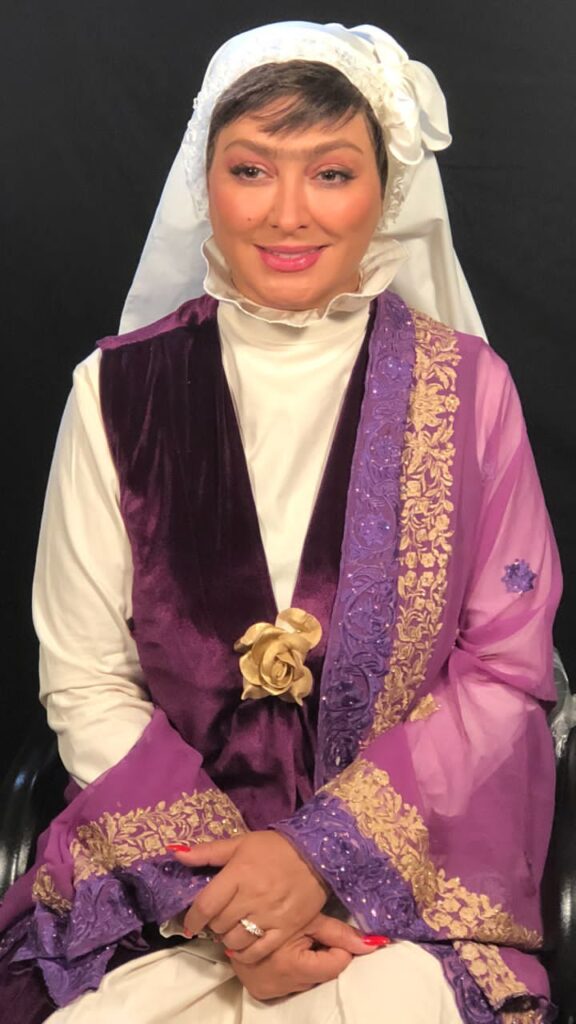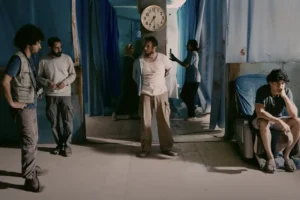by Maziar Sheibanifar
In Eternal Children (2006), Pouran Derakhshandeh has a sympathetic attitude towards children with Down syndrome, although the storytelling is not very strong.
This time, she chose another group of people with disabilities in society and portrayed some of their issues, obstacles and challenges with style and techniques of filmmaking she used from the beginning of her directorial activity. She obviously tried to tell an attractive and comprehensive story and attract the audience. Over the past years, acceptable movies have been made based on the life and needs of people with disabilities all around the world, especially in Hollywood. The fantasy element, the attractiveness of the story and the effectiveness are emphasized in movies of this type. Professional and capable actors usually play in such movies but in her new movie, Derakhshandeh seeks to reflect a real aspect of the life of people with Down syndrome. For this reason, she cast a teenager who has such a problem.
This movie is about a boy named Iman who intends to marry a girl named Negar. Iman lost his father a few years ago and is responsible for looking after his younger brother, Ali, who has Down syndrome. Negar’s parents are against this marriage and she is very uncertain. But she stops hesitating after doing some research. In the meantime, something happens to Ali.
This movie has a new theme and it is praiseworthy how Derakhshande introduces it, but it seems that she didn’t have enough time to prepare the screenplay well and present it as a complete text worthy of attention. The story starts with a good excuse, but when it gradually reaches the exciting moments, like when Ali escapes from nursing home and Iman tries to find him, the pictures shown during the movie intend to fill the running time, not as a step towards the visual and cinematic expression of the movie.
Another point is the events that happen to Ali. They tell part of sad events that affect such children. This topic enriches the conceptual message of the movie, but the design of these events does not fit the story. The screenplay is written in such a way as if several stories were planned for different parts of a series from the start but for various reasons, these short stories come together in the form of a movie.

If Derakhshandeh had chosen a single topic instead of expressing so many different topics and developed it carefully, her movie would undoubtedly have a lasting influence. The problems of people who have such children in their families, the conditions of nursing homes for these people, the inappropriate social conditions they have, etc. all of which could be a subject for a separate movie. While all of them are included in Eternal Children, none of them have been fully discussed.
In general, the courage of the director for paying attention to such an issue should be definitely appreciated because issues like that are challenging and there is a very short distance between plunging into an abyss of excessive sympathy (or pity) and talking about some of the problems they have in society. Furthermore, a movie should be able to attract the attention of the audience. One of the trump cards of this movie is Elham Hamidi who plays the role of Negar, a girl who is going to marry Amir (Shahab Hosseini). There are many movies in the world in which one actor and one character fills everyone’s shoes and makes a movie successful. Elham Hamidi is one of these actors. She can save a movie from falling down and being ignored by the audience (like a football team whose plans and tactics have reached a dead end and wins a match due to the ability of one of their players). When an actor’s partner is a person with disability, acting is certainly much more difficult for them because every reaction from one actor depends on the actions of another. In this movie, we can clearly see that Elham Hamidi was not only afraid of this situation, but seized the opportunity. The sequence where Negar and Ali are playing in Ali’s room and Ali is aiming at Negar with a fake gun like a policeman is an example of Hamidi’s ability. The climax of her performance is where she prevents Amir from entering the room so that she can develop a good relationship with Ali.
In conclusion, despite the filmmaker’s efforts, Eternal Children has only Elham Hamidi, this brilliant actress who deserves to be given top marks.
















+ There are no comments
Add yours